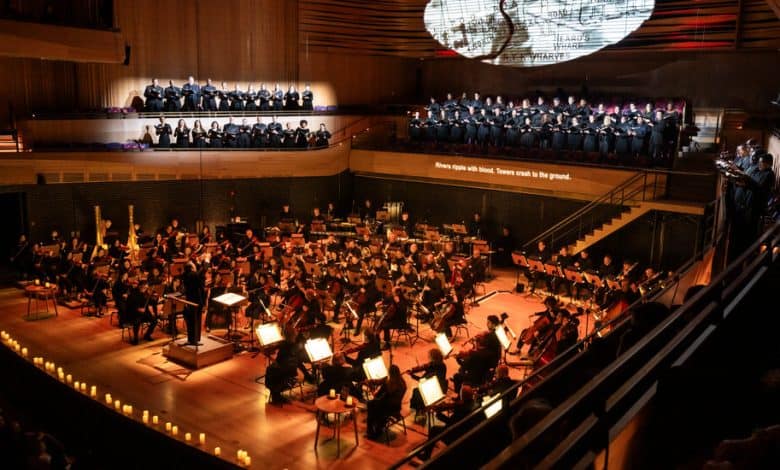Review: Shanghai’s Open Door to Jews, Remembered in Music

In Handel’s oratorio “Israel in Egypt,” which the New York Philharmonic performed in October, Jews are living in captivity across the Red Sea from their ancient homeland. In “Émigré,” a new oratorio that was given its American premiere by the Philharmonic on Thursday at David Geffen Hall, they’ve gone a lot farther: to Shanghai, where thousands fled Nazi persecution.
Few milieus could be as seductively dramatic as that Chinese city in the 1930s, with its cosmopolitan glamour and wartime danger. But “Émigré” evokes none of this theatrical allure, failing to grab the ear or the heart.
With music by Aaron Zigman (known primarily for films like “The Notebook” and “Sex and the City”) and a libretto by Mark Campbell with contributions by Brock Walsh, the piece sketches the historical situation through the story of two German Jewish brothers who settle in Shanghai, which was appealing for its open immigration policies. One of the brothers falls in love with a Chinese woman; her father and the other brother object to the match; amid the violence of the Japanese occupation, tragedy ensues.
It’s a promisingly sturdy plot. But the 95-minute score is so blandly cloying, the rhymed-couplets text so stiff and the characters so cardboard, that not a moment ends up surprising or moving.